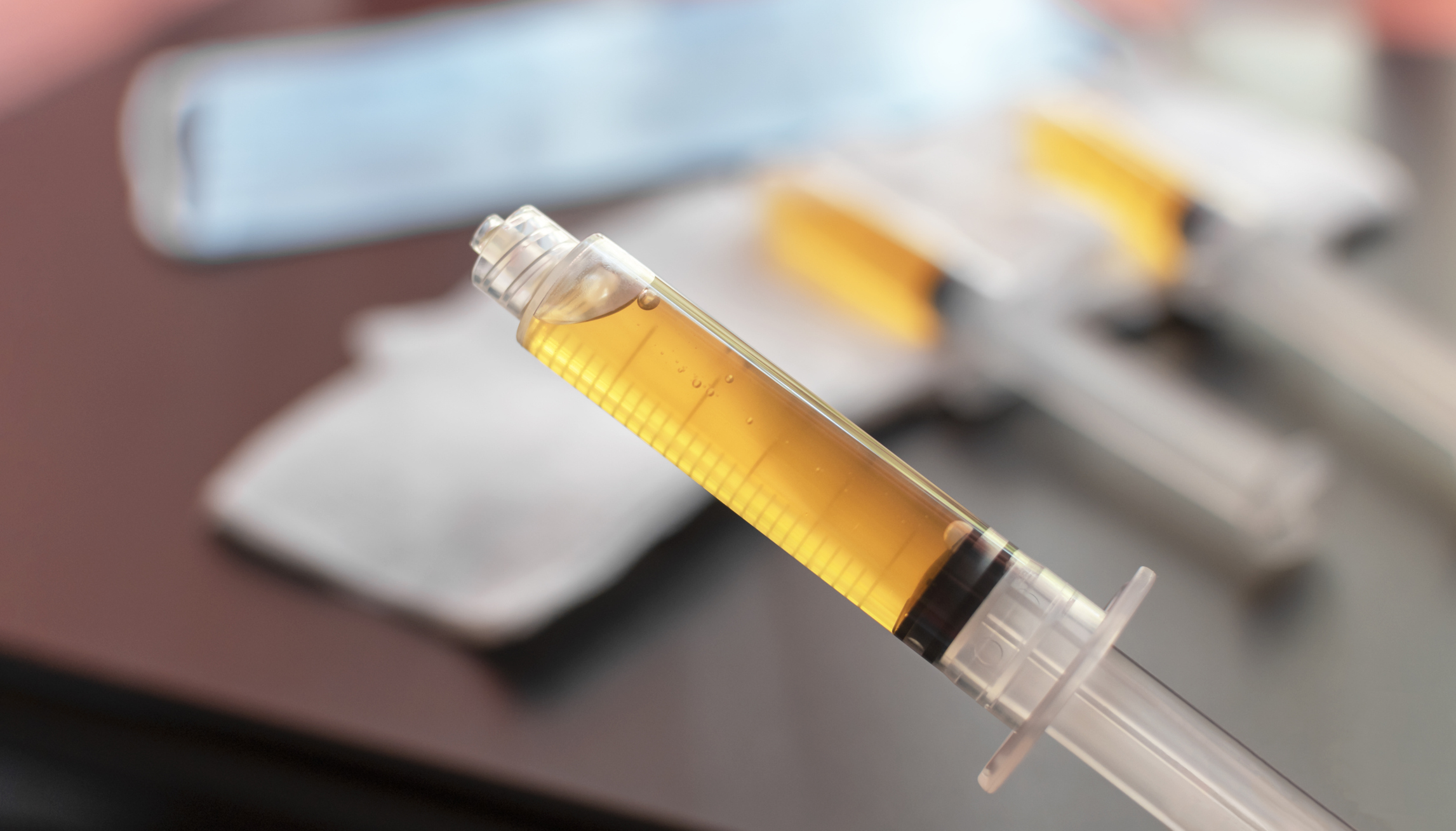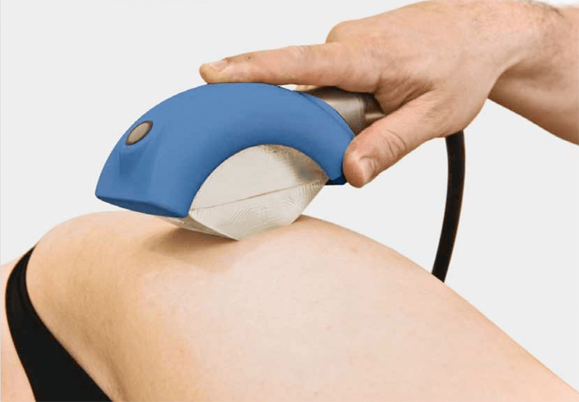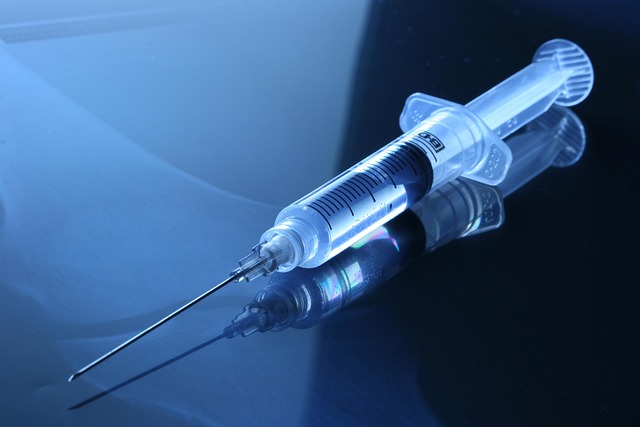Our Services
Specializing In Advanced, Non-Surgical Treatments
At Restorative Edge Clinic, we specialize in advanced, non-surgical treatments designed to help you recover, heal, and regain mobility. Whether you’re dealing with an injury, chronic pain, or seeking alternatives to surgery, our team is here to provide effective, personalized care. Explore our top treatments below to discover how we can help you get back to living your best life.
Platelet-Rich Plasma (PRP)
PRP Therapy uses your body’s own platelets to accelerate healing. By drawing a small sample of blood, we concentrate the platelets and inject them into the injury site. These platelets release growth factors that stimulate tissue repair, reduce inflammation, and promote the growth of new cells. PRP is commonly used for tendon injuries, ligament sprains, joint pain, and osteoarthritis.
Conditions Treated:
- Tendon injuries
- Ligament injuries
- Osteoarthritis
- Joint pain and inflammation


Shockwave Therapy
Shockwave Therapy uses high-energy sound waves to stimulate healing in soft tissues and joints. It improves circulation, breaks down scar tissue, and accelerates cell regeneration. This non-invasive treatment is highly effective for chronic tendon injuries, joint pain, and muscle tears, offering a drug-free alternative to surgery.
Conditions Treated:
- Tendon Injuries (e.g., Achilles tendonitis, plantar fasciitis)
- Joint Pain
- Soft tissue injuries
- Sports-related injuries
Stem Cell Therapy
Stem Cell Therapy uses regenerative cells from your own body to repair damaged tissues. By injecting stem cells into the injury site, we promote healing and tissue regeneration. This treatment is particularly effective for osteoarthritis, joint pain, and chronic injuries that haven’t responded to other treatments.
Conditions Treated:
- Osteoarthritis
- Joint degeneration
- Tendon and ligament injuries
- Chronic pain conditions

Frequently asked questions
Am I a Good Candidate For Platelet-Rich Plasma (PRP) Therapy?
Individuals who are generally healthy and looking to address conditions like:
- Osteoarthritis (joint pain, cartilage degradation)
- Tendon Injuries (e.g., Achilles Tendonitis)
- Ligament sprains/tears
- Chronic Pain Syndroms
Those with a Good Healing Response
- Patients who generally have a good response to healing and tissue regeneration. PRP treatment is designed to accelerate healing and tissue regenerations, so it’s most beneficial for those whose bodies can effectively respond to the growth factors in PRP.
Non-Smokers or Individuals with Controlled Lifestyle Factors
- People who do not smoke or have controlled lifestyle factors that may impair healing (such as controlled diabetes). Smoking and poor nutrition can hinder the body’s ability to heal, making PRP less effective.
Adults with Stable Conditions
- Typically, PRP treatments are reserved for adults, particularly those in their 30-60s, as they may see more significant benefits in tissue regenerations and collagen production.
Informed and Realistic Expectations
- Patients who understand that PRP is not a “miracle” solution, but rather a complementary treatment that works best when combined with other therapies or as part of a comprehensive treatment plan.
Who Should Not Get PRP?
PRP should NOT be used if any of these apply:
- Active infection at or near the treatment site
- Systemic infection or sepsis
- Severe Thrombocytopenia (very low platelet count)
- Platelet dysfunction syndromes (e.g., Glanzmann Thrombasthenia)
- Hemodynamic instability (unstable blood pressure or critical illness)
- Active cancers or malignancies
- Pregnancy (elective treatments deferred)
Use PRP cautiously if any of these apply:
- Anemia (low red blood cell count)
- Current use of anticoagulants (blood thinners like warfarin, heparin)
- Autoimmune diseases (e.g., lupus, rheumatoid arthritis)
- Poor general health or frailty
- Heavy smoking habit
- Uncontrolled diabetes
- Recent corticosteroid injection at the same site (wait 4-6 weeks)
Am I a Good Candidate For Shockwave Therapy?
A patient who has musculoskeletal conditions, especially those that involve chronic pain and tendinopathies. It works by delivering high-energy sound waves to targeted areas, which stimulates healing and reduces pain.
Here is a list of conditions and types of patients who may be a good candidate for shockwave therapy:
Plantar Fasciitis
- Description: Pain and inflammation of the tissue on the bottom of the foot.
- Candidate: People with chronic heel pain not responding to conservative treatments like physical therapy or orthotics.
Achilles Tendonitis
- Description: Inflammation of the Achilles tendon, usually caused by overuse.
- Candidate: Individuals with chronic Achilles pain that hasn’t improved with rest, physical therapy, or orthotics.
Tendinitis in Various Locations
- Description: Tendon inflammation from overuse, often in areas like the wrist, elbow, knee, and ankle.
- Candidate: Individuals with persistent tendon pain that doesn’t improve with rest, ice, and physical therapy.
Muscle and Ligament Injuries
- Description: Injuries to muscles and ligaments from trauma, strain, or overuse.
- Candidate: Athletes or active individuals recovering from muscle or ligament strains that have not healed properly.
Chronic Soft Tissue Injuries
- Description: Long-term pain in muscles, tendons, or ligaments from repetitive activities or prior injuries.
- Candidate: People with chronic pain from soft tissue injuries that haven’t responded to other treatments like physical therapy or anti-inflammatory medications.
Plantar Fasciosis (Chronic Plantar Fasciitis)
- Description: Chronic inflammation or degeneration of the plantar fascia.
- Candidate: Individuals with longstanding heel pain that hasn’t improved with more conservative methods like rest or orthotics.
General Criteria for a Good Candidate:
- Chronic pain: Shockwave therapy is most effective for conditions that have lasted for at least 3-6 months.
- Non-responsive to conservative treatments: If standard treatments like rest, physical therapy, medication, or injections haven’t worked, shockwave therapy may be considered.
- No surgical indication: It’s often a good option before resorting to surgery for conditions like tendinopathies or joint pain.
- Generally healthy individuals: Those without contraindications like blood clotting disorders, infections in the area to be treated, or fractures.
Who Should Not Get Shockwave Therapy?
Shockwave Therapy is not suitable for everyone. Pregnant women, people with certain heart conditions, or those with cancer in the area to be treated may not be candidates. It’s always essential to consult with a healthcare provider, Dr. Bangart, to determine if it’s appropriate for your specific condition.
